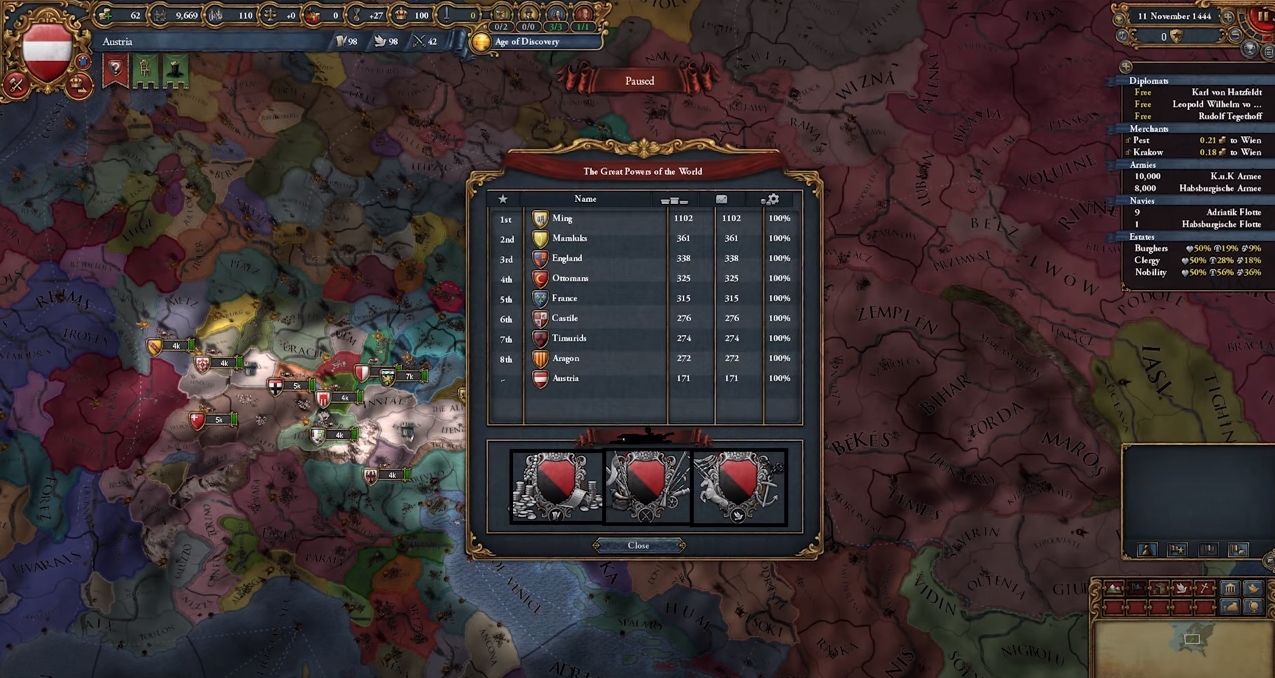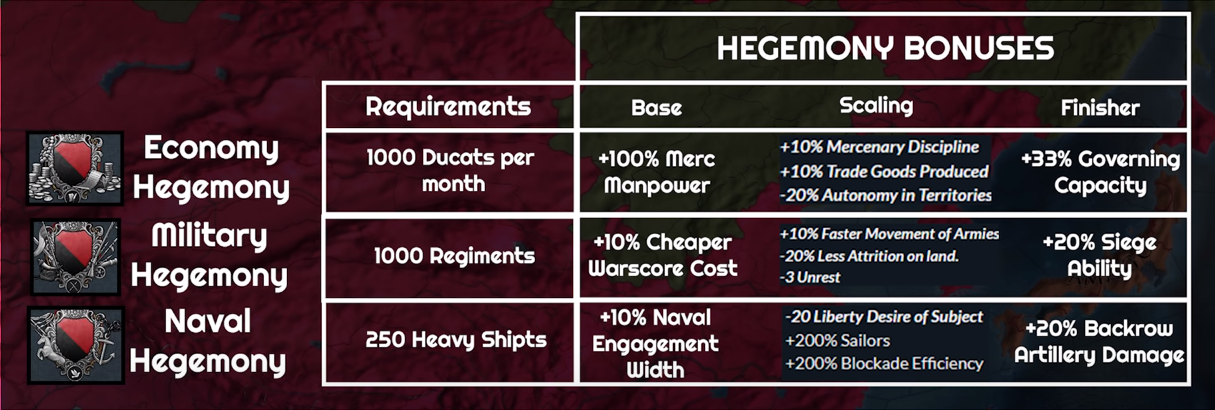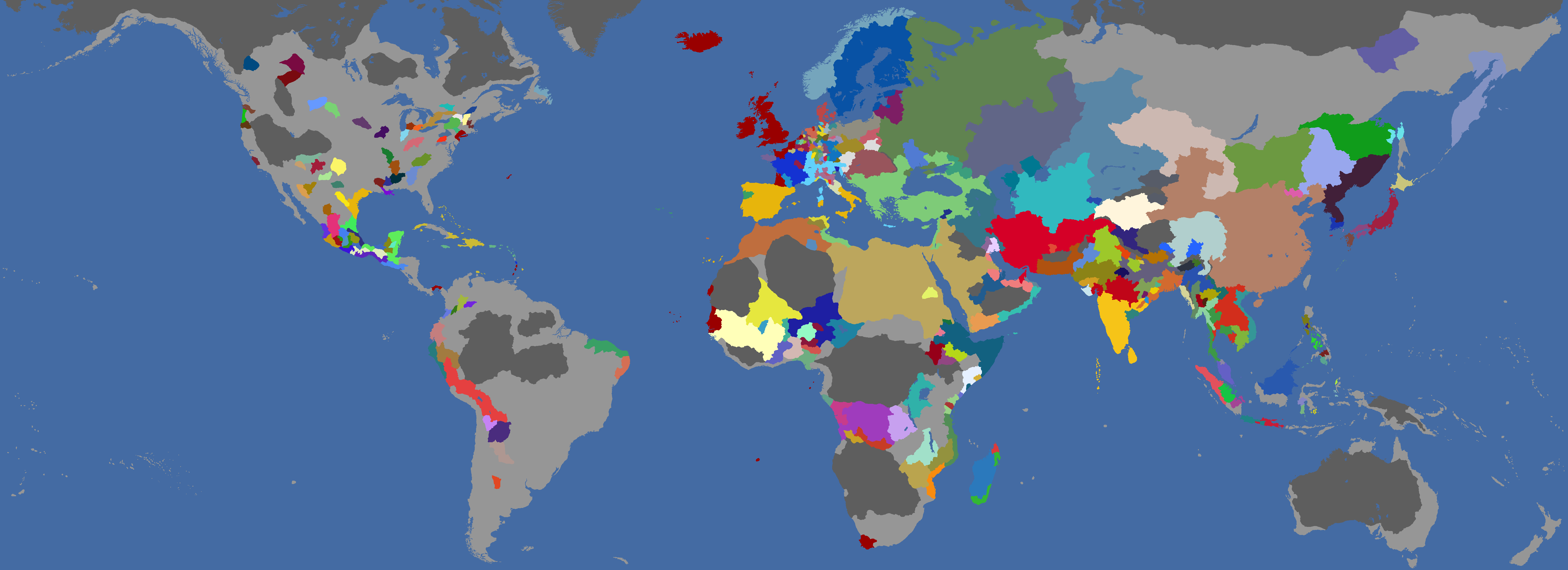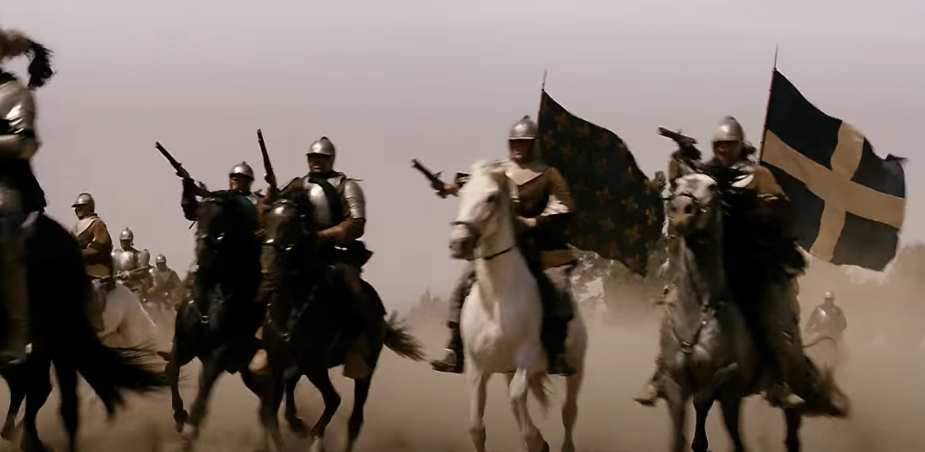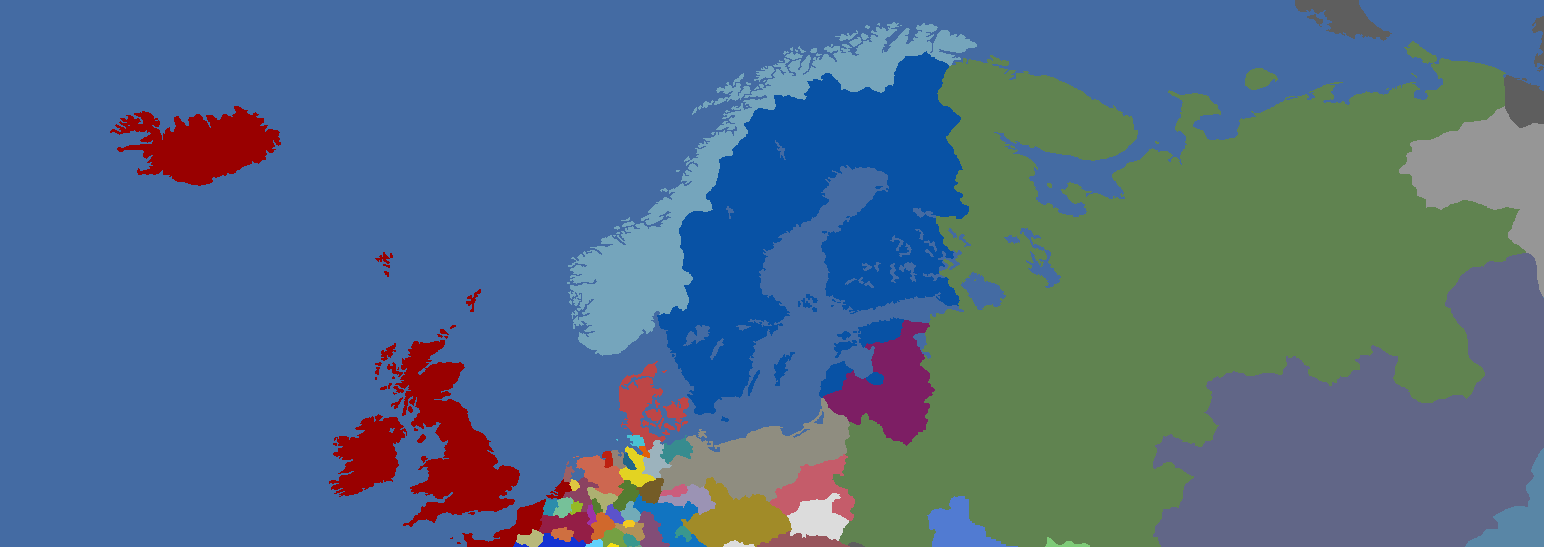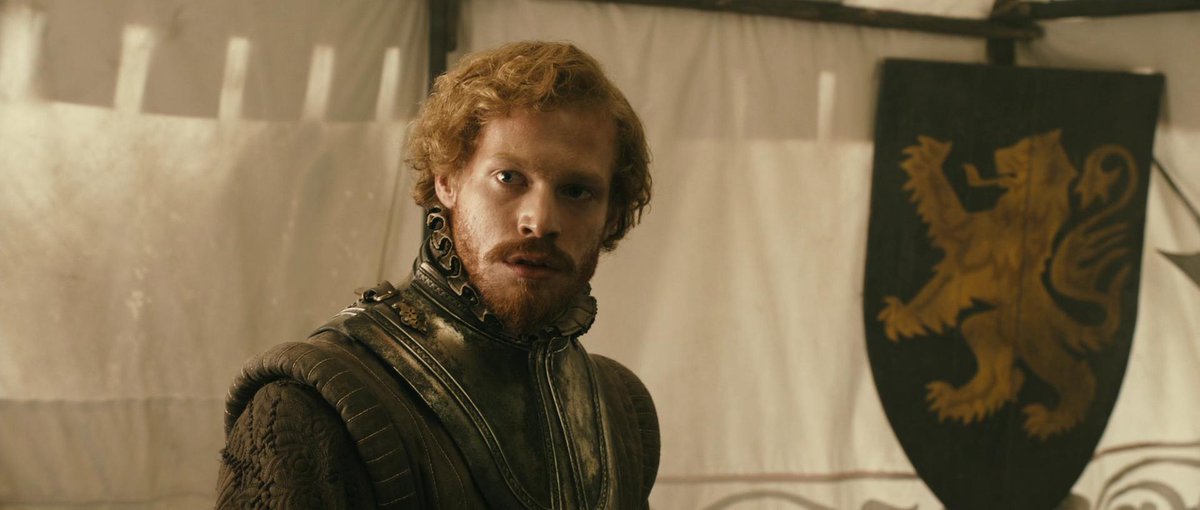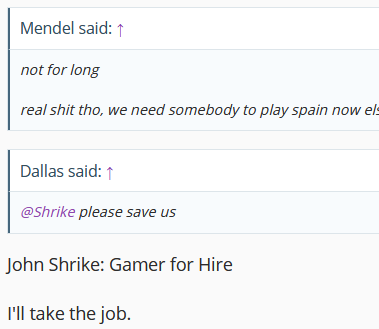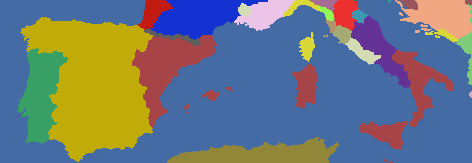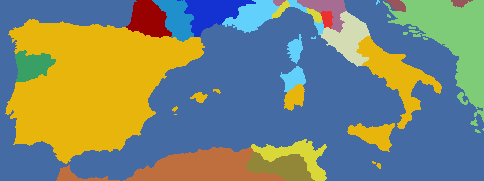cns - he/him/his
The Winner
- Joined
- Apr 26, 2016
- Messages
- 23,639
- Nebulae
- 65,343
nah bro like it wont ruin shit your own enjoyment is more importanti dont want the game to be ruined cause of me, if shrike cant make it ill continue
its just not that fun for me
Reactions:
List

